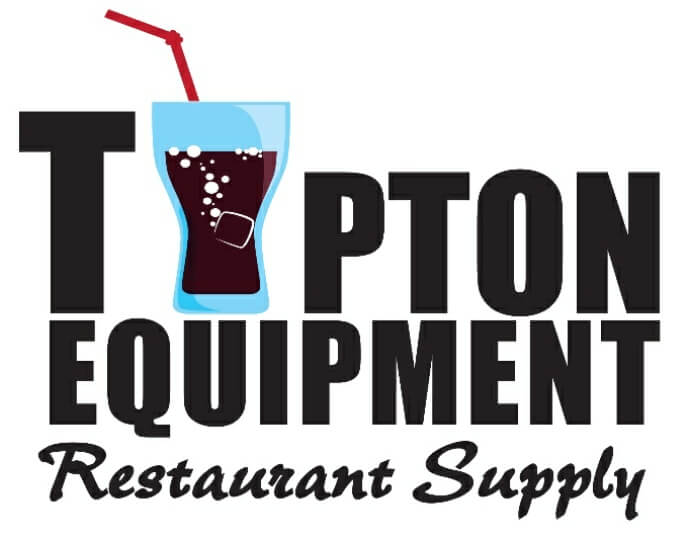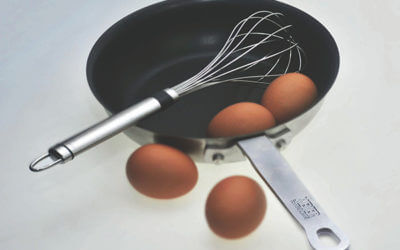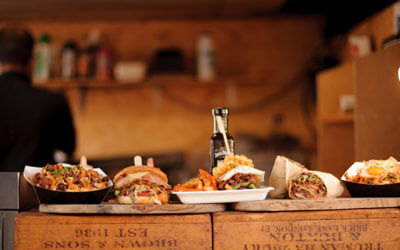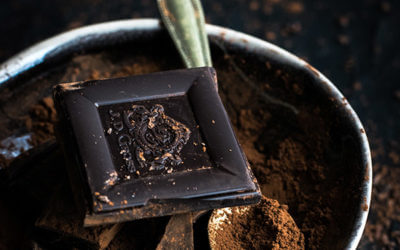Keeping Your Commercial Kitchen Clean
June 20, 2019According to the U.S. Centers for Disease Control and Prevention, one-in-six Americans get sick from consuming contaminated food or beverages every year.
Food poisoning isn’t surprising considering commercial kitchens can serve as a hot spot for germs and bacteria if they aren’t properly maintained. Regardless of whether the kitchen is in a high school cafeteria or a five-star hotel restaurant, ensuring your commercial kitchen is a clean and healthy environment should be a top priority.
Systematic
To operate a successful kitchen, you will need to incorporate a regular cleaning schedule into the day to day running of your business. From everyday tasks to those which can be performed less regularly, your cleaning program will all depend on how often you use your kitchen.
For example, every day you will need to; wipe down the sink and worktops and clean the floor. Whereas cleaning cabinets, appliances, fridges, and other kitchen equipment may need less regular cleaning.
Ensuring you strict daily, weekly, and monthly tasks will help to ensure your cleaning program is adhered too and maintained.
Floors
Given the busyness of the typical commercial kitchen, dirty floors are standard in restaurants. Dropped food can cause germs in the air as small droplets and adversely affect the food’s quality. Employee shoes can track dirt into walk-in freezers, walk-in refrigerators, and food-prep areas, causing cross-contamination. The takeaway? Dirty commercial kitchen floors aren’t just a trip-and-fall hazard; they’re also a threat to public health, as they can harbor organisms that cause food-borne illnesses. Unfortunately, mopping may be insufficient.
So, what does work when it comes to the question of how to clean a greasy restaurant kitchen floor? We recommend a floor cleaning system that scrubs the floor and sucks up all the dirty liquid into a holding tank. While this may seem like an unnecessary expense compared to a mop, it’s an investment in the overall well-being of your restaurant kitchen. An industrial kitchen degreaser is one of the commercial kitchen cleaning supplies that can help remove grease from kitchen floors.
One additional tip: Save cleaning the floors for last to avoid having to do the work again due to debris falling from other surfaces as you wash them.
Clean, Clean, and Cleaner
Kitchen equipment and surfaces need more than just washing. To help ensure that bacteria numbers are reduced to a safe level, it’s essential to sanitize. There are two different ways to disinfect, with a chemical agent or with heat. This takes cleaning one step further and provides long-lasting protection against potential contamination.
Food poisoning occurs when someone consumes unsafe food or drink – often contaminated with harmful bacteria. So how can you keep your commercial kitchen clean and fresh?
First, hands are one of the primary ways in which germs spread. All people working in a position where they touch food should know how to wash their hands properly. Washing includes before and after handling raw food or touching anything that may have been exposed to germs.
Perishable products usually come with “use-by” dates, based on scientific testing. These dates indicate approximately how long items will remain safe for consumption. Following the use-by date, food could be unsafe to eat, even if it looks and smells normal.
It’s essential to make sure that your refrigerator is set below the 41°F if you want to ensure that chilled foods remain chilled to a safe temperature. Keeping foods at the right temperature during periods of storage can ensure that harmful germs are not permitted to grow and multiply. Make sure that commercial fridges do not get overfilled, as there should always be enough room for air to circulate – thereby maintaining the correct temperature.
Apply routines and stay consistent, and your commercial kitchen will thrive in cleanliness and productivity.
Questions to Ask Before You Invest in Kitchen Equipment
When you invest in kitchen equipment, you want to make sure you’re getting exactly what you need and that it will last you a long time. It can be overwhelming to think about everything you need when you’re starting a restaurant. Even if you’re just trying to add or...
Uh Oh. Handling Restaurant Disaster Recovery
No one wants to think about a major disaster hitting their restaurant. Unfortunately, it can happen at any time. In Arkansas, large areas (including Little Rock) were declared disaster areas as recently as last summer. Severe flooding, wind damage, and tornados are...
Restaurant Supplies You Need: Technology in Your Business
Every business is impacted by technology, and restaurants are no exception. There are dozens of ways to use technology to build your business, improve your efficiency, and serve customers better. Sometimes restaurant owners feel like they’re too busy to implement new...
Key Restaurant Equipment for a Fast-Casual Restaurant
Fast-casual dining has changed how America eats and has impacted what people expect in terms of convenience, price, and food quality. Generally, fast-casual food is affordable and higher-quality than pure fast food. It’s a step above a McDonald’s, without the price or...
Equipment for Your Restaurant: Choosing a Restaurant Concept
Some people who start a restaurant know exactly what they want. They either buy an existing restaurant with a concept, or they create the menu based on their family traditions or ethnic flair. However, not everyone who wants to start a restaurant knows exactly what...
Restaurant Supplies: Using Herbs to Add Flavor to Your Dishes
If you’re looking for new ways to attract people to your restaurant, consider the ways you can add flavor without adding fat or calories. Consumers are more and more concerned about the quality of what they eat, both at home and in a restaurant. Home cooks generally...
Commercial Kitchen Debate: Stainless Steel vs. Non-Stick Pans
If you run a commercial kitchen, you probably have a lot of ways of doing things that just seem right to you. For whatever reason, you decided between a gas and electric stove. You made decisions about dishware. And you probably have a position on the stainless steel...
Restaurant Equipment: How to Handle Gluten Allergies
In the last five years, you’ve probably seen a dramatic increase in the number of restaurant customers you have that are avoiding gluten. Some of them simply don’t like it, and others have a life-threatening reaction if they eat it. As a restaurant owner, you want to...
Reduce Food Waste: Proper Kitchen Equipment and More
Food waste is a reality in any commercial restaurant, but it doesn’t have to be accepted blindly. Too many restaurant owners or head chefs feel as though there is nothing they can do about this waste. Fortunately, there’s a lot you can do to reduce food waste in your...
Restaurant Supplies: Furnishing an Outdoor Sitting Area
Outdoor dining is a very enjoyable experience for many people. In Little Rock the weather is generally pleasant, although humidity may make it hard to eat outside on the hottest summer days. Adding an outdoor sitting area to your restaurant can be a great way to...
Commercial Kitchen Fun: The Wonder of Chocolate
If there’s anything that almost everyone loves as much as coffee, it’s chocolate. In fact, there are multiple celebrations of chocolate each year. Chocolate Day is on July 7th, because historically that’s when chocolate was first brought to Europe in 1550. Don’t miss...
Cooking Equipment Spotlight: Safe Indoor Grilling
Indoor grilling is a great way for your restaurant to delight customers without having to run a big charcoal operation out back. There’s nothing like grilled meat and vegetables to put a great aroma in the air and encourage hungry diners to dig in. There are two...
Restaurant Supplies: How to Properly Store Spirits & Drinks
Spirits and other alcoholic drinks can add a lot to your bottom line as a restaurant. These drinks often have high margins, and people order more than one frequently. This leads to more revenue for your restaurant and better tips for your servers! In order to make the...
Going Green Can Benefit Your Commercial Kitchen
Do you feel like running a restaurant means that you have to give in to wasted food, materials, and even money? Great news – you don’t. If you want to build your business, consider going green! You can structure your commercial kitchen to help the planet while also...
Key Foodservice Equipment for Your Food Truck
Are you ready to start a food truck? While the restaurant industry climbs slowly at roughly two percent a year, the food truck industry has been booming. Growing nearly 8% per year over the last five years, trucks are one of the fastest growing parts of the food...















